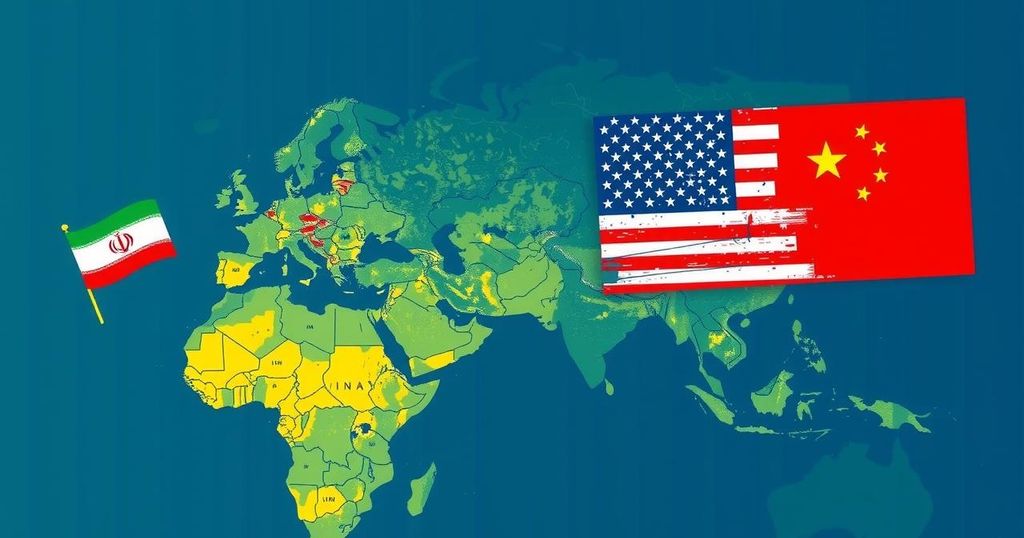Trump 2.0: Anticipated Disruption in U.S. Policies Towards Iran, China, and Climate Efforts
Former adviser Robert McNally predicts that Trump’s re-election will lead to increased pressure on Iran to prevent war, a competitive stance toward China, and the dismantling of U.S. climate policies. This shift in focus marks a significant disruption in U.S. foreign relations and environmental strategy.
In a recent analysis, former White House adviser Robert McNally articulated the potential implications of Trump’s re-election for U.S. foreign policy, particularly concerning Iran, China, and climate initiatives. McNally emphasized that President Trump will likely employ a strategy of ‘maximum pressure’ aimed at Iran to avoid military conflict. Concurrently, he will intensify efforts to confront China and systematically dismantle existing U.S. climate policies. This shift in approach underscores a significant disruption in international relations and environmental governance following Trump’s anticipated return to power. McNally’s insights were shared during a forum in the Middle East shortly after the election results were confirmed, highlighting the strategic moves expected from the incoming administration.
The geopolitical landscape has been significantly shaped by U.S. foreign policy decisions, particularly under the Trump administration. Trump’s previous tenure saw a marked shift towards unilateralism and aggressive postures in international relations. Relations with Iran worsened under his ‘maximum pressure’ campaign, which sought to curtail Iran’s nuclear ambitions without resorting to military action. Similarly, tensions with China escalated due to trade and technology disputes. Furthermore, Trump’s approach to climate change, framed as regulatory rollback, reflects a prioritization of economic interests over environmental commitments. Understanding these dynamics is essential in analyzing the future direction of U.S. policies under a Trump 2.0 scenario.
The projected return of President Trump to power is poised to reshape U.S. foreign policy with significant consequences for global relations. Through a carefully crafted strategy focused on ‘maximum pressure,’ Trump aims to mitigate military engagement with Iran while tackling competition with China. Additionally, the dismantling of the U.S. climate framework indicates a broader shift in environmental policy priorities. As McNally outlined, these factors collectively illustrate a notable disruption that will warrant close attention from global observers and policymakers alike.
Original Source: www.upstreamonline.com




Post Comment